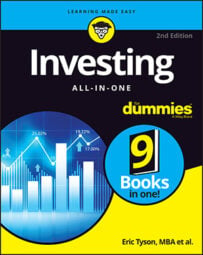Here are ten time-tested principles of investing success. Following these principles can pay you big dividends (and capital gains) for many years to come.
- Regularly save and invest 5 percent to 10 percent of your income: Do this as soon as you begin earning money on a regular basis. Preferably, invest through a retirement savings account to reduce your taxes and ensure your future financial independence.
- Understand and use your employee benefits: Often, the most valuable benefit you have through your employer is a retirement savings plan, such as a 401(k) plan that enables you to make contributions and save on your current income taxation.
- Thoroughly research before you invest: Be sure you understand what you're investing in. Don't purchase any financial product that you don't understand. Ask questions until you understand the risks and returns of the product.
- Shun investments with high commissions and expenses: The cost of the investments that you buy is an important variable you can control. All fees must be disclosed in a prospectus, which you should always review before making any investment.
- Invest the majority of your long-term money in ownership investments: With your long-term money, focus on investments that have appreciation potential, such as stocks, real estate, and your own business. When you invest in bonds or bank accounts, you earn a return that probably won't keep you ahead of inflation and taxes.
- Avoid making emotionally based financial decisions: Successful investors keep their composure when the going gets tough. You need the ability and wisdom to look beyond the current environment, understanding that it will change in the months and years ahead.
Be especially careful about making important financial decisions after a major life change, such as marriage, the birth of a child, a divorce, job loss, or a death in your family.
- Make investing decisions based on your plans and needs: Your investment decisions should come out of your planning and your overall needs, goals, and desires. This requires looking at your overall financial situation first and then coming up with a comprehensive plan.
- Tap information sources with high quality standards: You need to pare down the sources you use to keep up with investing news and the financial markets. Give priority to those that aren't afraid to take a stand and recommend what's in your best interests.
- Trust yourself first: Look in the mirror. You'll see the best financial person that you can hire and trust. What may be missing is enough education and confidence to make more decisions.
If you need help making a major decision, hire conflict-free advisors who charge a fee for their time. Work in partnership with advisors. Never turn over control.
- Invest in yourself and others: Don't get so wrapped up in making, saving, and investing money that you lose sight of what matters most to you. Invest in your education, your health, and your relationships with family members and friends.

